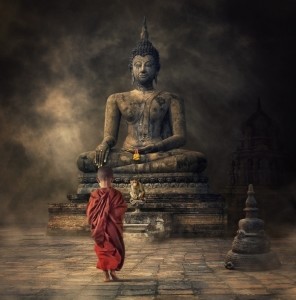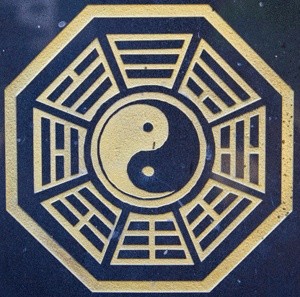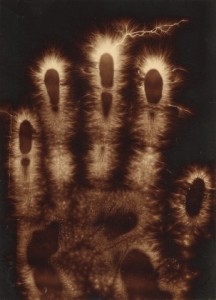An insight into Traditional Chinese medicine’s background, influences, ethics, cultural history, way of life and forward direction.
Traditional and modern Chinese medicine is not just a temporary ‘band aid’ approach to medicine, but a way of life. To live a fulfilling lifestyle involving the mind, body and spirit working together. Ancient philosophy with a modern approach.
BUDDHISM
Buddhism is the worlds 4th largest religion after Christianity, Islam and Hinduism and is widely practiced in Asia. It’s a religion and a philosophy that is based on the teachings of Buddha (Siddhartha Gautama), who lived around the 5th century BCE.
The basic concept of Buddhism is that life is suffering. BUT, suffering can be overcome by living in the following ways;
- A moral life
- Being aware of thoughts and actions
- Developing wisdom and compassion
He believed that the path to lasting happiness is to overcome negative emotions (eg: anger, jealousy) by developing positive ones to counteract them (eg: love, compassion).
Buddhism in China has played a pivotal role in shaping and influencing the culture, aesthetics, philosophy, literature and medicine of the Chinese people.
At the heart of the Buddhism’s way of life is meditation. Traditional Chinese medicine is a preventative medicine, which recognizes the mind & spirit to be equally important as the physical health of a person. It uses the cumulative effect of meditation to quiet the mind and controlled breathing for health and longevity. Therefor spirituality plays an important part of its holistic healing approach.
TAOISM
Taoism (the way), along with Buddhism & Confusianism is one of the three great religions of China. It’s philosophy began with the writing of the classic text the Tao-Te-Ching by Lao Tse (604 – 531 BE). The Tao-Te-Ching was the outcome of Lao Tse’s search for a way of dealing with the relentless feudal warfare of the time in which he lived.
He believed that in life, man must practice;
- non- action
- detatchment
- cultivation of softness and flexibility.
The Tao represents the life force and it’s relationship with the universe, nature and man. Taoists believe that nature is a constantly fluctuating balance between opposites. Any attempt to change events, will be unsuccessful and doomed to failure. They live as detached observers, allowing nature to take its course by watching but not intervening in the flow of events from good to bad and back again. The three jewels of Taoism are compassion, moderation and humility.
The well known Taoist tai chi, or yin-yang symbol shows this balance of opposing forces in nature, inside and outside, earthly and spiritual, good and bad, dark and light.
Taoists have traditionally used various exercises and healing techniques to promote overall good health, maintenance and longevity. Among them is Traditional Chinese meditation, martial art forms, tai chi and the medical practice of qi gong.
Traditional Chinese medicines consideration of nature’s forces, yin and yang balance and universal relationships, sickness results in blockages of the body’s flow of qi. Acupuncture, tai chi and qi gong are all methods of stimulating the smooth flow of qi and blood to promote health and longevity. These are all important practices and the way of life in modern China and increasingly, in the western world.
CONFUCIANISM and the Chinese Medicine ethical tradition
Kung Chui, respectfully addressed as Kung Fu-tse or Confucius by later generations, was a distinguished philosopher, thinker, educator and political ethicist. Confucian theories on morality and ethics formed the backbone of traditional medical ethics of China. It’s rich contents had powerful significance and influence on the culture and politics of the country.
After his death, his disciples inherited and developed his academic thoughts. In the Song and the Ming dynasties, Confucianism appeared in the form of ‘Confucian idealist philosophy’ as a result of the fusion of Confucianism with Taoism and Buddhism, later becoming the dominant philosophy of rulers in the late feudal society (960- 1840) of China.
These scholars were primarily concerned with the philosophical problems of human nature and the way of heaven. They supported the position of ‘letting the heavenly principles love and letting human desire perish’.
The viewpoints of Confucianism on benevolence and material interests, on good and evil, on kindheartedness and on character cultivation was further refined and inherited by medical workers, thus becoming prominent in Chinese medical ethics.
A formal system of Chinese traditional medical ethics emerged with well defined content, which has been followed and amended by Chinese medicine professionals of all generations throughout Chinese history to today. In brief, this system contains concepts such as the need;
- to attach great importance to the value of life
- to do one’s best to rescue the dying and to heal the wounded
- to show concern to those who suffer from disease
- to practice medicine with honesty
- to study medical skill painstakingly
- to oppose a careless style of work
- to comport oneself in a dignified manner
- to respect local customs and be polite
- to treat patients, noble or humble, equally
- to respect the academic achievements of others
TAI CHI
Tai Chi is a centuries-old Chinese martial art that descends from Qi Gong, an ancient Chinese discipline that has its roots in traditional Chinese medicine.
A branch of Chinese martial arts and varying in styles, its name is derived from the philosophical term, “Tai Chi,” the first known written reference of which appeared in the Book of Changes over 3000 years ago, during the Zhou Dynasty.
The essential principles of Tai Chi are based on the ancient Chinese philosophy of Taoism, which stresses the natural balance in all things and the need for living in spiritual and physical accord with the patterns of nature. According to this philosophy, everything is composed of two opposite, but entirely complementary, elements of yin and yang, working in a relationship which is in perpetual balance. Tai Chi consists of exercises equally balanced between yin and yang, which is why it is so remarkably effective.
Benefits of Tai Chi include:
- Builds muscle strength in lower limbs & overcomes lower body weakness
- Increases strength of knee and ankle extensors and expands motion range around joints
- Improves proprioception in the knees, ankle & golgi tendons
- Improves mobility, coordination & dynamic balance
- Improves the bodies ability to adjust & orient to directional change
- Improves toe clearance during walking & reduces tripping
- Improves blood circulation & normalises blood pressure, thus reducing the risk of falls associated with hypotension
- Prevents bone demineralisation & minimises the risk of bone fractures through weight bearing movements
- Reduces stress, increases confidence & overcomes anxiety & fear of falling
QI GONG & DAOIST EXERCISE THERAPY
Conentrates on the dynamics of qi and principles of using exercise therapy as a treatment strategy for preventative care and health maintenance, with its harmising treatments and cultivation practices. Qi flow – Qi quality – Qi cultivation.
In order to reach a calm, peaceful mind and a healthy body, the varied schools of Qi Gong and the practices of Dao Yin share the common belief that in training, it is essential to focus on regulating the mind, the body and the breath. If these 3 things are regulated fluently, then the qi flow would be smooth and sickness would not occur.
MIND CULTIVATION .. to be continued ..
acupuncture penrith acupuncture penrith acupuncture penrith acupuncture penrith lemongrove acupuncture penrith lemongrove acupuncture penrith acupuncture penrith acupuncture penrith acupuncture penrith acupuncture penrith acupuncture penrith lemongrove acupuncture penrith lemongrove acupuncture penrith acupuncture penrith acupuncture penrith acupuncture penrith acupuncture penrith acupuncture penrith lemongrove acupuncture penrith lemongrove acupuncture penrith acupuncture penrith acupuncture penrith acupuncture penrith acupuncture penrith acupuncture penrith lemongrove acupuncture penrith lemongrove acupuncture penrith acupuncture penrith acupuncture penrith acupuncture penrith acupuncture penrith acupuncture penrith lemongrove acupuncture penrith lemongrove acupuncture penrith acupuncture penrith



